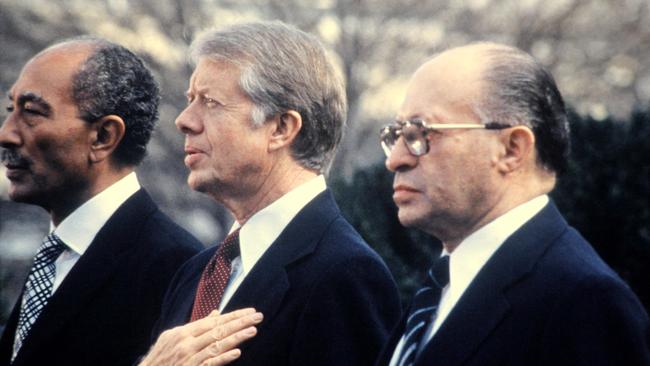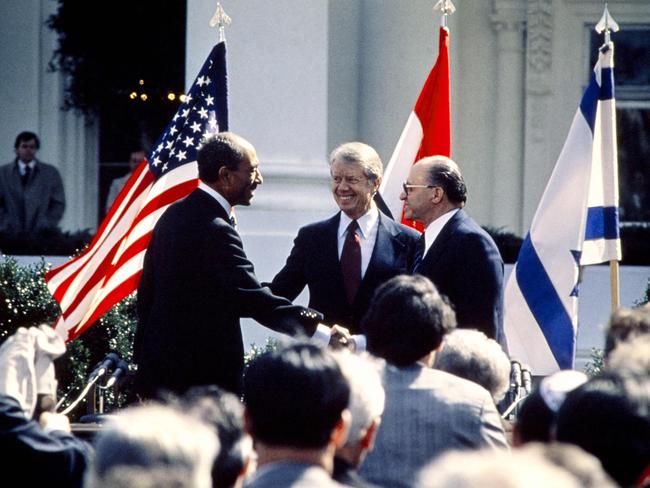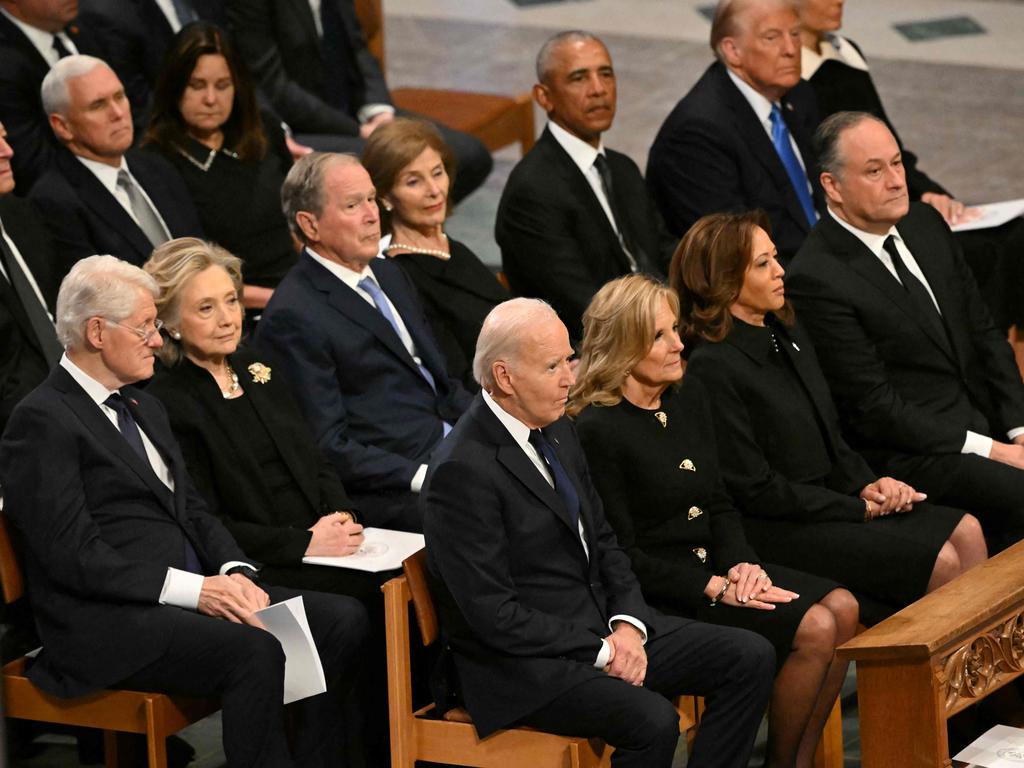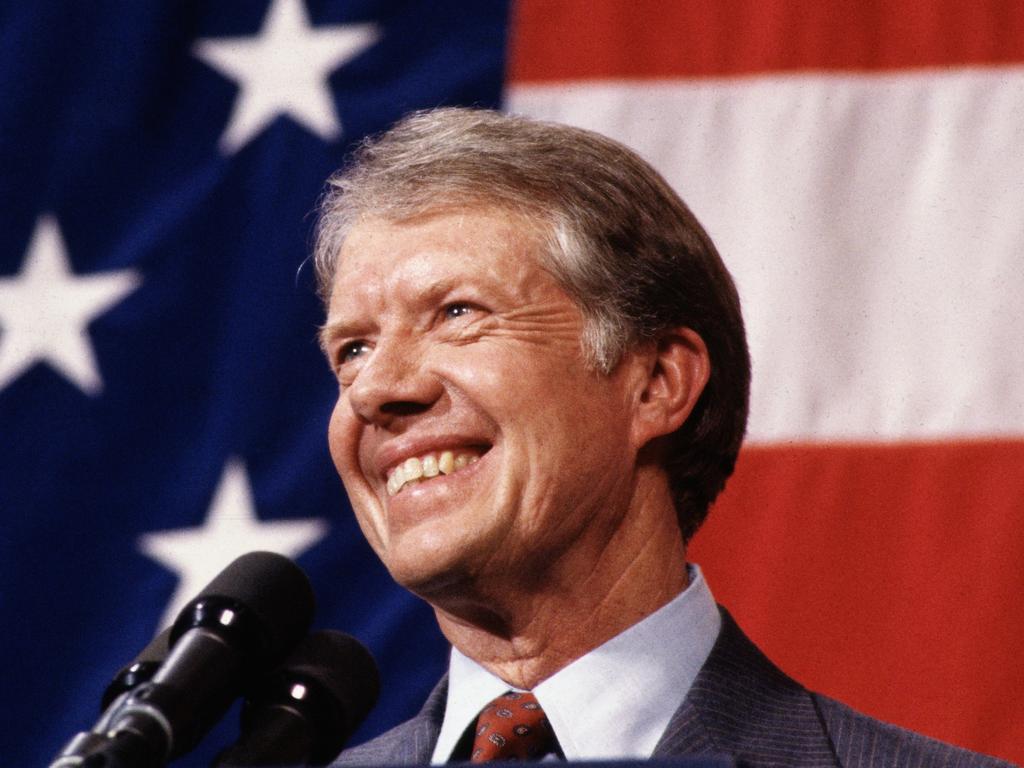
Hunter S. Thompson, whose study of the 1972 election campaign, Fear and Loathing on the Campaign Trail, remains a masterpiece of political reportage, covered the 1976 presidential election where Carter emerged from virtual anonymity to win the White House. Thompson’s collection of essays leading to Carter’s triumph can be found in the anthology of his writings, The Great Shark Hunt.
The gonzo journalist held Carter in the highest regard but he knew that the Georgia Governor was first and foremost a political animal.
“[Jimmy Carter] was one of three meanest men I’ve ever met,” Thompson said in an interview on CBC in 1977. “The other two were Muhammad Ali and Sonny Barger, the president of the Hells Angels. Those three men are a whole cut above everyone else I’ve ever met in terms of sheer, functional meanness.”
“Carter would have had my head cut off to carry North Dakota. Cut both your legs off to carry a ward in the Bronx. He never apologised for it. He understood the system. That’s why he won.”
Carter’s legacy as POTUS is hotly debated. He was a one-termer, arguably a victim of terrible timing, beset by global economic problems beyond his reckoning – an oil supply crisis and raging stagflation. He was no deal maker and treated members of congress with disdain and often open contempt. The Camp David Accords in 1978 which forged an enduring peace between Israel and Egypt and reset the political dynamics of the region, diminished the Soviet Union’s influence in the Middle East, secured Israel while sidelining the Palestinians was undoubtedly his greatest foreign policy success.

The Iran Hostage crisis in 1979 overwhelmed his presidency and a failed rescue mission in April 1980 where eight US servicemen died, sealed his fate at the ballot box.
Regardless of how political historians might regard his presidency, it is his life after the White House that is extraordinary and without any apparent displays of the animus Thompson accused Carter of. While former presidents tinkered with their legacies, curated their libraries and headed for the golf course, Carter established the non-profit Carter Centre which would lead the project work for Habitat for Humanity for more than 30 years. Alongside more than 100,000 volunteers 4500 homes have been built, renovated or repaired in 14 countries.
It was Jimmy Carter’s express wish that the last guinea worm, a parasite that causes debilitating illness and often lifelong physical incapacity would pass from the Earth before he did. Carter came up short on that but not by much.
Carter had visited a village in Ghana in 1988 that was suffering from Guinea worm infections. He often spoke of the haunting images from that visit, of men, women and children screaming in pain as the parasite, a long spaghetti like worm emerged from the body through blisters.
Carter began to lead the fight against Guinea worm disease also known as dracunculiasis. In 1986, there were 3.5 million cases in 21 countries across Africa and Asia. By 2022 there were just two. With data still to be received, it appears there have been 11 or so human infections in 2024, a spike attributed to the discovery of guinea worms spreading among stray dogs in Chad with baboons in Ethiopia also carrying the parasite. Detections of dracunculiasis in Angola, which was considered free of the disease by the end of the 20th Century, were reported in 2018 and while no human infections have been recorded in the Southern African nation in the past three years, it remains a concern.
Killing the last guinea worm was going to be harder than previously thought. The definition of disease eradication is three consecutive years of zero infections. The expected date for the eradication of the parasite has now been shifted from 2020 to 2030.
There has only been one infectious disease entirely eradicated as a result of human intervention: smallpox. But wiping out guinea worm disease will have been achieved with no treatment, no vaccine, no herd immunity, and no cure. It has been the Carter inspired intervention of health workers across Africa and Asia, often using simple tools like cheesecloth water filters and educating people in remote areas to make behavioural changes which has brought this parasite and the pain, suffering and enduring poverty it causes, to the brink of extinction.
It was Carter’s statesmanship that allowed health workers to do this vital work, often in war-ravaged countries and in remote areas usually beyond the reach of assistance. It was Carter’s capacity for influence that enabled the eradication project to proceed where otherwise it would have been scotched by conflict. His status as a political figure enabled him to negotiate a ceasefire in the civil war in southern Sudan in 1995, allowing health workers into a part of Africa where guinea worm disease had been endemic.
The arguments over Jimmy Carter’s presidency will continue. Good, bad or mediocre – it’s a matter of opinion but in his 43 years of service after his time ran out in the White House, Jimmy Carter, a good man driven by his profound Christian belief, became great.






James Earl ‘Jimmy’ Carter, the 39th President of the United States, has been honoured at a funeral at Washington National Cathedral in the company of five past or serving presidents.